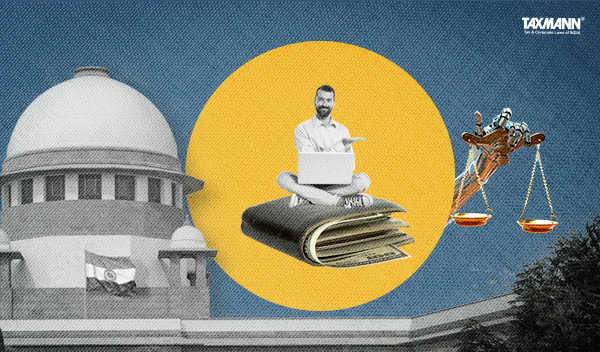No Prosecution for Non-disclosure of Foreign Assets in ITR if It Occurred Before Enactment of Black Money Act | HC
- Blog|News|Income Tax|
- 2 Min Read
- By Taxmann
- |
- Last Updated on 27 June, 2024

Case Details: Smt. Dhanashree Ravindra Pandit v. Deputy Director of Income-tax (Investigation) - [2024] 163 taxmann.com 695 (Karnataka)
Judiciary and Counsel Details
- M. Nagaprasanna, J.
- Sangram S. Kulkarni, Adv. for the Petitioner.
- Y.V. Raviraj & Tulajappa Kalaburgi, Advs. for the Respondent.
Facts of the Case
The assessee was the Directors of two British Virgin Island Companies. A complaint under the Black Money (Undisclosed Foreign Income and Assets) and Imposition of Tax Act, 2015 (‘BM Act’) was filed against the assessee for not disclosing the information of the assets located outside India, including financial interest in any entity, in the income tax return (ITR).
The complaint was filed under section 50 of the BM Act. Section 50 makes it an offence if the assessee fails to furnish any information about an asset located outside India, including financial interest. The section further provides for punishment with rigorous imprisonment, which shall not be less than 6 months but may extend to 7 years, and with a fine.
Assessee filed a writ petition to the Karnataka High Court contending that the complaint was filed for the act committed in 2009. The BM Act came into force on 01-07-2015. Thus, the said act does not fall within the ambit of Article 20(1) of the Constitution of India, which provides that no person shall be convicted of any offence except for violation of a law in force at the time of the commission of the act charged as an offence.
High Court Held
The High Court ruled that the Apex Court, in the case of Rao Shiv Bahadur Singh v. State of Vindhya Pradesh (1953 AIR 394), held that Article 20 of the Constitution of India grants a fundamental right to a person. This right ensures that a person cannot be convicted of an offence unless it violates the law in force at the time of the act, nor can they be subjected to a penalty greater than that which could have been imposed under the law in force at that time.
The Apex Court held that a legal fiction or a deeming fiction should not be extended beyond the purpose of the Act for which it is created or beyond the language deployed in the enactment. If the deeming section is given credence and criminal law is affirmed, it would defeat the tenor of Article 20 of the Constitution, as every post-facto law could be made retrospective.
In the present case, the assessee was prosecuted for the act committed before the BM Act came into force. The BM Act came into force on 01-07-2015, and the assessee was prosecuted for the act committed in 2009. Therefore, the assessee cannot be convicted of any offence except for violating the law in force at the time of committing the act charged as an offence.
List of Cases Referred to
- Union of India v. Gautam Khaitan (2019) 10 SCC 108 (para 14).
Disclaimer: The content/information published on the website is only for general information of the user and shall not be construed as legal advice. While the Taxmann has exercised reasonable efforts to ensure the veracity of information/content published, Taxmann shall be under no liability in any manner whatsoever for incorrect information, if any.

Taxmann Publications has a dedicated in-house Research & Editorial Team. This team consists of a team of Chartered Accountants, Company Secretaries, and Lawyers. This team works under the guidance and supervision of editor-in-chief Mr Rakesh Bhargava.
The Research and Editorial Team is responsible for developing reliable and accurate content for the readers. The team follows the six-sigma approach to achieve the benchmark of zero error in its publications and research platforms. The team ensures that the following publication guidelines are thoroughly followed while developing the content:
- The statutory material is obtained only from the authorized and reliable sources
- All the latest developments in the judicial and legislative fields are covered
- Prepare the analytical write-ups on current, controversial, and important issues to help the readers to understand the concept and its implications
- Every content published by Taxmann is complete, accurate and lucid
- All evidence-based statements are supported with proper reference to Section, Circular No., Notification No. or citations
- The golden rules of grammar, style and consistency are thoroughly followed
- Font and size that’s easy to read and remain consistent across all imprint and digital publications are applied



 CA | CS | CMA
CA | CS | CMA
